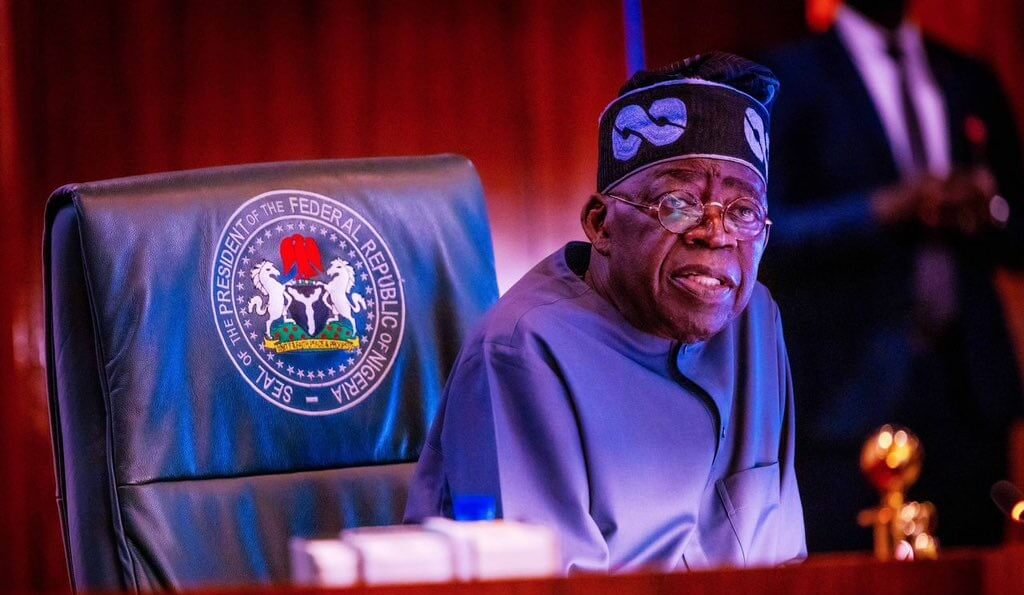LCCI Charges Tinubu To Reduce Nigeria’s Debt Costs By Issuing Asset-Linked Debt
The Lagos Chamber of Commerce and Industry (LCCI) has charged President Bola Tinubu to reduce Nigeria’s debt costs by issuing more of asset-linked debt than IOUs (I Owe You).
While asset-linked debt is a type of instrument with variable payments linked to an equity market benchmark, IOU is an informal written acknowledgment of a debt, showing the sum owed, the debtor’s signature, and sometimes the name of the creditor.
Advertisement
Nigeria’s public debt – federal and state governments – increased by N3.60 trillion in the first quarter of 2023 from the sum of N46.25 trillion recorded at the end of December 2022, according to the Debt Management Office (DMO). This does not include the N22.7 trillion loans that the Central Bank of Nigeria (CBN) advanced to the Federal Government under its Ways and Means policy.
In its macroeconomic snapshot released in May, KPMG said Nigeria’s debt service to revenue ratio may exceed 100 percent this year.
LCCI’s call is contained in a communique issued at the end of its 2023 Mid-Year Economic Review and Outlook, which it jointly organized with Cordros Capital.
The chamber noted that non-interest-bearing debt provides opportunities that can be explored as emerging markets move towards project equity financing.
Advertisement
“The new administration is advised to borrow better to reduce debt costs by issuing a more asset-linked debt than IOUs. The non-interest-bearing debt opportunities should be explored as emerging markets tilt towards project equity financing,” LCCI said.
The chamber called on the government to consider divestment of state-owned real estate, adding that the government must focus more on asset-based and equity offerings to improve revenue.
“Government should consider the urgent need for an all-encompassing economic and fiscal plan, full/ partial divestment of state-owned real estate, improved transport sector, and energy assets as post-election priorities,” it said.
The LCCI also called for institutional reorganisation in the CBN and the Nigerian National Petroleum Company (NNPC) Limited.
“Institutional reorganization is urgently needed in the CBN and the NNPC to improve transparency and accountability.
Advertisement
“The operating environment of NNPCL is somewhat opaque, which is anti-competition. The oil sector will attract the desired investment if the government liberalizes fuel import licenses and other vital activities in the midstream and downstream,” the chamber stated.
Emphasizing on the need to unlock revenue from assets by complementing tax with rent, fees, dividends, and capital gains, LCCI noted that “economies that optimize revenue through equities have recently offset the loss from declining commodity prices.”
While calling on the government to stop tagging Bureau de Change as a parallel market, the chamber said: “BDCs should not be referred to as parallel or unofficial markets, because they are officially licensed to trade.”
The LCCI explained that the country’s economy in the first half of 2023 was challenging due to rising interest rates, inflationary pressures, foreign exchange volatility, and the liberalization of the downstream sector of the oil and gas industry.
“Although the general elections held in March 2023 were considered relatively peaceful and the transition completed in May, business conditions and operating environment in the first half of the year were essentially difficult due to rising interest rates, inflationary pressures, foreign exchange volatility, and the liberalization of the downstream sector of the oil & gas industry.
“As a result, the cost of living has significantly gone up. The first quarter GDP slowed to 2.31 percent, primarily driven by growth in the non-oil sector while the oil sector remained in recession. The country also witnessed a significant decline in foreign direct investments (FDIs), coupled with a high level of public debt stock and concerns for debt sustainability, high unemployment, and poverty levels.
Advertisement
“The International Monetary Fund (IMF), in its July 2023 World Economic Outlook (WEO) Update, lowered its growth projection for Nigeria in 2023 to 3.2 percent from 3.3 percent in 2022, reflecting security issues in the oil sector, policy risks, and persistently high inflation,” the chamber said.



